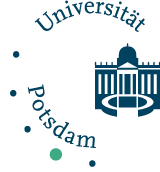Doctoral Researchers

Mustafa Nasery
Master of Business Administration
Campus Griebnitzsee
DFG-Research Training Group "WIPCAD"
University of Potsdam
Department of Economics
and Social Sciences
August-Bebel-Straße 89
14482 Potsdam, Germany
Office: Campus Griebnitzsee, House 7,
Room 3.07.211-15
Research topic
“Success and failure of civil service reform in Afghanistan”
financed by the German Academic Exchange Service (DAAD)
Curriculum vitae
EDUCATION
2014 – Ongoing
Doctoral Researcher, “WIPCAD-Wicked Problems, Contested Administrations: Knowledge, Coordination, and Strategy” Research Training Group, Department of Economics and Social Sciences, Potsdam University
2012 – 2014
MA, Fatih University, Institute of Social Sciences, Istanbul, Turkey Graduation Project: “Crisis Management in SME’s of Turkey”
2007 – 2012
BSc., Istanbul Technical University, Istanbul, Turkey Graduation Project: “Data Analysis Systems for High Altitude Platforms”
INTERNSHIP AND WORK EXPERIENCES
2012 – 2014
German International Cooperation (GIZ) & University of Potsdam
Position: Consultancy in joint project: “Strengthening of Public Administration Institutes of Afghanistan” (SPA-PCPM)
2013 – 2014
Counterpart International, Georgia
Position: Project Consultant
2012 – 2014
UN Association of Georgia (UNAG), Tbilisi. Georgia
Position: Consultant & Workshop facilitator
2009 – 2013
International Organization for Migration (IOM). Istanbul. Turkey
Position: Project Assistant – Cultural Orientation Tutor (Canadian and Australian Culture) – Consultant
2008 – 2013
UNHCR Field Office, Istanbul. Turkey:
Position: Registrar – System Data Entry Clerk – Consultant
2012
Afghan Wireless Communication Company (AWCC) Kabul. Afghanistan
Position: Intern – Data Analyzer
2011
PAB Communication Services LTD., Istanbul. Turkey
Position: Intern – Researcher
2009 – 2010
Signal Processing Laboratory. Istanbul Technical University, Turkey
Position: Laboratory Manager – Data Analyzer
ACHIEVEMENTS AND CERTIFICATES
2005
Certificate of Award: Gold Medal in International Mathematics Projects Computation (IMPC), Almaty, Kazakhstan
2006
First Degree Presidential Certificate of Honor, Given by President Karzai, Kabul, Afghanistan
2006
Certificate of Excellence from Afghanistan’s Ministry of Education
2012
Certificate of Honor, Eurasia Strategic Researches Organization, Turkey
Abstract
Success and failure of civil service reform in Afghanistan
“Public employment [in Afghanistan] is now purchased rather than earned… the main problem is that before reforms family, party and faction connections were privileged… and now the whole system is dominated by money"
(USAID-Afghanistan, 2009)
"The world knows that we did our best and it worked well! Thanks to Taliban we had no single policy paper when we got the office, but now you have clear instruction and policy about every aspect of Afghan civil Service”
(Former IARCSC Commissioner, 2012)
How and under what conditions were Civil Service Reforms (CSR) in the post-Taliban era of Afghanistan initiated? Why were reforms in few line ministries reportedly implemented successfully whereas the same reforms with the same implementation structure and under the similar leadership style have failed in some others? Who were the main domestic and foreign actors involved in the process? What was their role and interest? And finally, while reforming Afghanistan's civil service, to which extent were the lessons learnt from previous large scale SCR initiatives in other post-conflict societies considered and what could be the main learnings from more than one decade of reforms in Afghanistan? In the light of these, and similar, fundamental questions, this research aims to study the costly, time consuming and wicked process of reforming civil service in the context of Afghanistan, where a variety of factors such as involvement of several domestic and foreign actors with conflicting interests, large scale ongoing corruption within the public sector- due to injection of billions of international aid- and finally lack of capacity, networks of patronage and institutionalized nepotism have created a very complex, and in some cases unique, environment for any kind of reform to succeed.
Concentrating on three main areas being recruitment, pay and grade, and promotion of civil servants, the study will first analyze the processes, actors involved and their approaches during rule formulation and policy making of major reforms, since their start in 2003, and then through an exploratory perspective it will research the implementation of those reforms across two or more ministries as the most successful and most failed implementations to address the controversial views on consequences, outcomes and the sustainability of implemented reforms.
